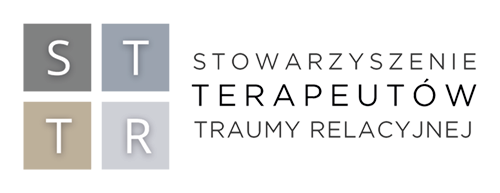We are an organization founded by Dr. Marta Kochan-Wójcik and Dr. Aleksandra Chybicka-Myszka that brings together professionals from various fields of psychotherapy, specifically interested in the subject of complex trauma (C-PTSD) and relational trauma. Our goal is to support practitioners—psychologists and psychotherapists working with adults, adolescents, or children—in developing their skills so that they can effectively assist clients in their healing process.
We focus on continuous professional development, education, and the exchange of experiences between specialists. We organize training sessions, workshops, and supervisions led by recognized experts in complex and relational trauma, as well as conferences that provide opportunities for sharing knowledge, exchanging experiences, and fostering collaboration among professionals. We are committed to raising public awareness about complex and relational trauma.
Understanding and Therapy of Relational Trauma
Relational and Complex Trauma
Relational and complex trauma results from repeated, long-term, and complex traumatic experiences, such as various forms of abuse and neglect, which most often occur during childhood and in relationships with close individuals. As a result of these experiences, a person develops self-protective strategies that gradually distort the foundations of their identity, leading to disconnection from various aspects of their inner life and a loss of contact with grounded reality.
Building Survival Strategies
People typically disconnect from the parts of their developing personality that were not accepted by caregivers, as well as from emotional responses the caregivers were unable to receive. At the same time, their lives begin to revolve around survival strategies that once proved essential for making it through the past—rather than around fulfilling their true potential and desires in the present.
Complex Trauma Therapy
Complex trauma therapy is a slow and patient process of restoring the client’s psychological and emotional integrity. It leads to the rebuilding of the capacity to relate to oneself and to others in a safe and authentic way.
Why Insight and Understanding Are Not Enough?
When beginning therapy, people often seek explanations, as they are accustomed to thinking that insight and rational understanding of their problems will bring relief. However, the self-protective strategies formed in response to traumatic events are not governed by the conscious and reflective parts of the self, but by those that are emotional in nature, automatic, and outside of conscious awareness. Therefore, in such cases, cognitive insight alone is not a sufficient tool for therapy.
The Importance of the Therapeutic Relationship
Real change will require deeper work that includes emotional and somatic processing of experiences. Only on that foundation can new, more adaptive patterns of thinking and behavior be developed. And such a process can only take place within a safe, reflective, and deeply human therapeutic relationship.


